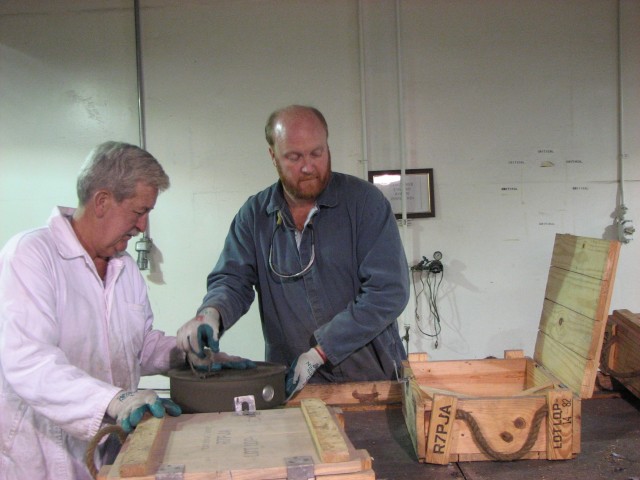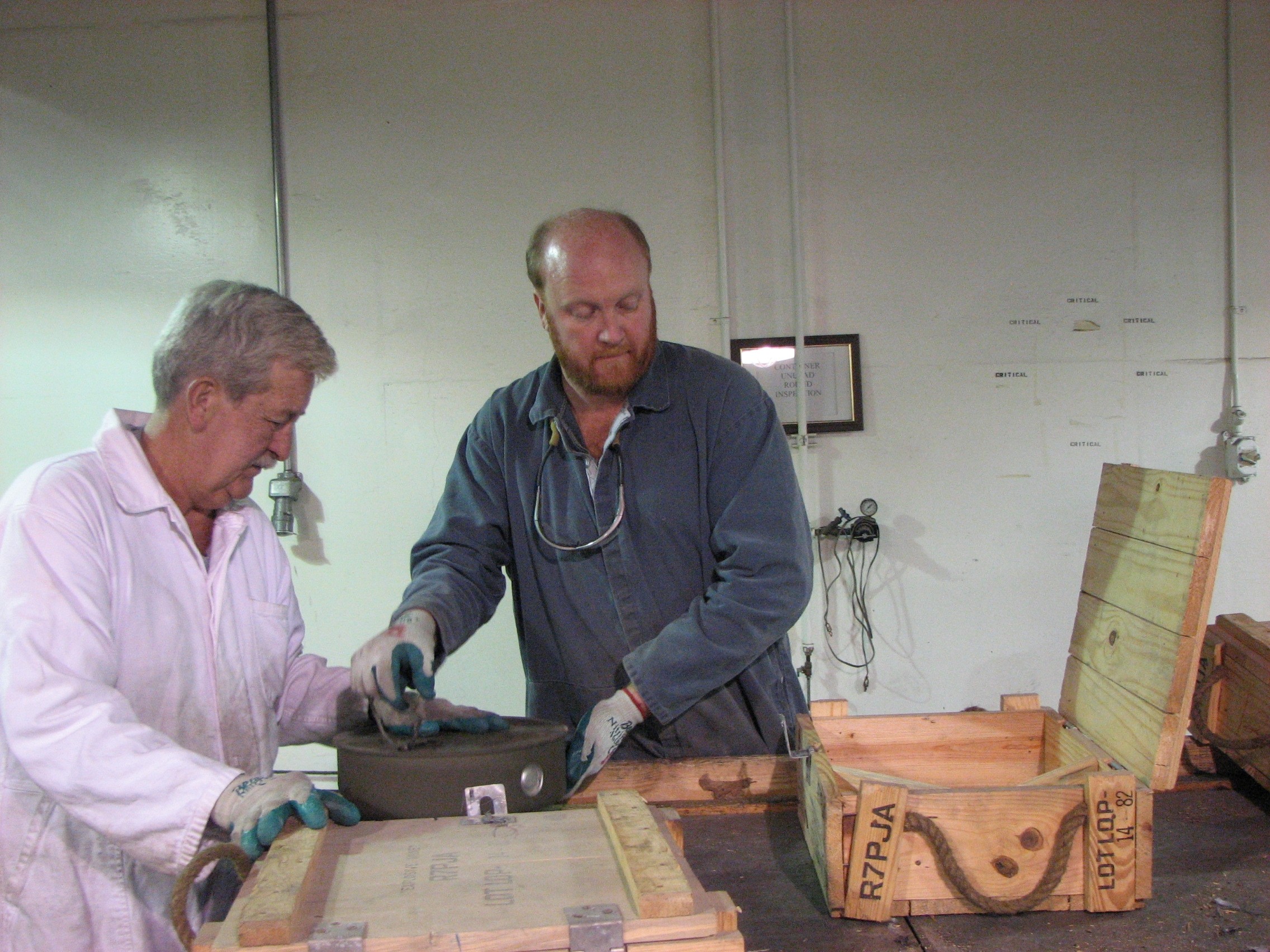ANNISTON ARMY DEPOT, Ala. - "Nothing left but the air," would amply describe the demilitarization process conducted by the Anniston Munitions Center.
Several times a day, weather permitting, employees with ANMC eliminate outdated and suspended ammunition through a "below ground detonation or open burn."
"(The employees) are unpacking M-15 anti-tank mines getting them ready for demil process," said Clyde Hill, a munitions operator, guided missiles supervisor with the munitions center. "After the (below ground detonation) you have an instant swimming pool."
Preston Morgan, an explosives operator supervisor, or "Demo pit" supervisor, said the demil process has kept the munitions center busy during his nine years with the demo pit.
"We completed the Spartan missiles in eight months in 2007," he said. "Right now we're destroying rejects from the TOW missile recycling center and 66 mm rockets, incendiary rounds."
Morgan said specific steps must be taken to ensure the demo burn goes smoothly. None is more important than daily safety briefings.
"My safety philosophy is to have the least amount of explosives for the least amount of people, for the least amount of time," he said. "We have a safety briefing every morning, to address what to look out for."
Following the safety briefing, an elaborate process begins for the total destruction of ammo.
"We shoot one to 15 holes at one time and up to 1,000 pounds (of ammunition) in each shot," he said. "The M-15 mines assist in the total destruction of ammunition. We use one pound of TNT on each corner, and use a detonating cord out of hole. After a bulldozer places dirt over the material to be destroyed, blasting cap/time fuse are added and we're ready to go."
Morgan said due to the tricky nature of a detonation, explosive operators have to also dabble in the "weatherman" business. "Any wet weather, cloud cover, or high wind speeds and the demo pit is a no-go," he said.
If everything is a go, crews have a bunker and television cameras set up down range from the explosions.
Environmental standards are also of importance to Anniston.
"We are also required to have a good working knowledge of environment issues in relations to our operations," he said. "Occasionally we are visited by the Alabama Department of Environmental Management personnel who keep a close eye on us to ensure we following state regulations and permits."
Lt. Col. Duncan MacMullen, commander, Anniston Munitions Center, said open burn technology is still needed for the seeable future.
"Despite the advent of new techniques, like our missile recycling capability, we foresee a continued need for open burn and open detonation for demilitarization of munitions," he said. "There are some items that are just too tricky to handle otherwise."


Social Sharing